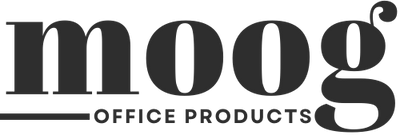Job interviews are an exciting but sometimes nerve-wracking experience. They’re an opportunity to showcase your skills, learn more about a potential employer, and figure out whether a company is the right fit for you. However, it's not just about making a good impression—it's also about being mindful of certain aspects during the process to ensure you make the best possible decision for your career. Here are some key areas to pay attention to during a job interview.
1. Research the Company Thoroughly
Before stepping into the interview, make sure you've done your homework on the company. Look into its history, values, products or services, and recent news. If a company’s goals or ethics don’t align with your own, this might be a red flag.
Additionally, pay attention to how much information the interviewer provides about the company's long-term vision. A lack of transparency can indicate instability or poor communication.
2. Analyze the Job Description and Responsibilities
While the job title might sound appealing, ensure that the actual responsibilities align with your skills and career goals. During the interview, clarify any vague or overly broad points in the job description.
Ask questions like:
- “What does a typical day in this role look like?”
- “What are the key metrics for success in this position?”
A company that cannot give clear answers may not have a well-defined role in mind, which could lead to confusion or dissatisfaction later on.
3. Evaluate the Workplace Culture
A company’s culture can greatly influence your job satisfaction and performance. During the interview, try to gauge the atmosphere of the workplace. Some cues to look for include:
- Team Dynamics: Ask about collaboration and communication within the team.
- Work-Life Balance: Inquire about hours and flexibility.
- Diversity and Inclusion: Evaluate their commitment to creating an inclusive environment.
If the interviewer avoids these topics or offers vague responses, it might indicate a less-than-ideal workplace culture.
4. Pay Attention to the Interviewer’s Tone and Questions
The way an interviewer communicates can provide valuable insight into the company’s environment. Are they professional, polite, and genuinely interested in your responses? Or do they seem distracted, disorganized, or even dismissive?
Similarly, beware of questions or comments that seem inappropriate, such as those that hint at unfair expectations, a lack of work-life balance, or disregard for professional boundaries.
5. Understand the Growth Opportunities
Ask about opportunities for advancement within the company. A healthy workplace invests in the growth and development of its employees. Look for companies that offer training programs, mentorship, or a clear career progression path.
If the interviewer brushes off questions about long-term development, it could signal a lack of commitment to employee satisfaction or retention.
6. Be Wary of Red Flags
During the interview, watch out for warning signs that the job might not be as promising as it seems. These could include:
- High Turnover Rates: Ask why the position is available and how long previous employees stayed in the role.
- Unrealistic Expectations: Be cautious if the interviewer describes the job as overly demanding without proper support.
- Poor Communication: If the hiring process is disorganized or the interviewer is unprepared, it might reflect poorly on the company.
7. Ask About Compensation and Benefits
While salary isn’t always discussed in detail during the first interview, ensure there is clarity around what the company offers in terms of compensation and benefits. Ask about health insurance, retirement plans, vacation time, and other perks. If the company is vague or hesitant to provide specifics, it may be worth reconsidering.
8. Prepare for Behavioral and Situational Questions
Employers often use behavioral or situational questions to understand how you handle challenges. Be ready to share specific examples of past experiences that highlight your problem-solving skills, teamwork, and adaptability.
At the same time, analyze the scenarios they present—are they realistic? Do they reflect a supportive or high-pressure environment?
9. Trust Your Instincts
Sometimes, your gut feeling can be the best indicator of whether a job is right for you. If something feels off during the interview—whether it’s the interviewer’s attitude, the office environment, or the company’s responses to your questions—don’t ignore those feelings.
10. Follow Up Post-Interview
After the interview, always send a polite follow-up email thanking the interviewer for their time. Use this opportunity to reiterate your interest in the role and clarify any outstanding questions. Their response—or lack thereof—can also give you insight into how the company values communication and professionalism.
Moog Desk Sets: Your Partner in Staying Organized
Preparing for and succeeding in job interviews requires careful organization and planning. That’s where Moog Desk Sets come in. With their sleek, functional designs, Moog Desk Sets help you keep your workspace organized, so you can focus on crafting the perfect resume, preparing for interviews, and keeping track of follow-ups. A well-organized space leads to a clear mind, making Moog Desk Sets an essential tool for every professional looking to advance their career.

